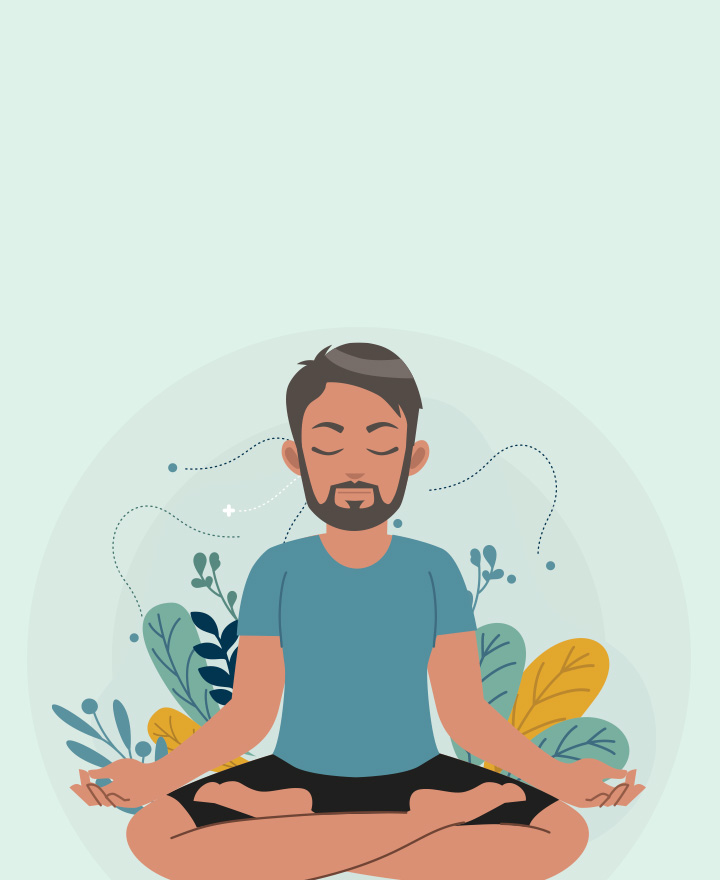

Need Better Sleep? Try These Five Yoga Poses
Yoga is an intricate Indian physical and mental activitywith numerous techniques one can choose from, varying from moderate to physically demanding. Physical awareness, mindfulness, and breathing exercises are all part of yoga. Practicing yoga regularly can help people suffering from insomnia and get better restful sleep.
What is Yoga?
Yoga started in ancient India and is a physical, cognitive, and moral activity. Yoga comes from the Sanskrit term yuj, which means “to yoke” or “to combine.” The goal of practicing yoga is to bring harmony to body, mind and soul, and increase self and general consciousness. Yoga benefits an individual in various ways including mobility, stamina, relaxation and flexibility.
The Benefits of Practicing Yoga Regularly
• Increases the flow of blood
• Reduced anxiety and better relaxation
• Increase in muscle strength
• Increases metabolism
• Lowers blood sugar
Five Yoga Poses to Sleep Better
Nowadays, unhealthy lifestyle habits and increased anxiety and stress has caused sleep problems among several of us. Certain yoga poses, if practiced regularly, can help you resolve your sleep issues and help you get more restful and rejuvenating sleep.
1. SuptaBaddhaKonasana (Resting Butterfly Pose)

Steps to perform:
1. Lay down flat or propped on pillows to support your back and relax your body
2. Bend your knees outwards so that the soles of your feet touch each other
3. Place your hands above the head or to your sides
4. Now, relax and concentrate on your breaths
2. Balasana - Supported (Child Pose)

Steps to perform:
1. Keep your legs in vajrasana with your knees slightly apart, and bend forward from your hips. Ensure your neck is supported (add a cushion under your upper body, if necessary)
2. Place your neck to one side and practice deep breathing
3. Now, change your neck position to the other side and repeat the above
3. ViparitaKarani (Inverted Lake Pose

Steps to perform:
1. Place the exercise mat against the wall. Lay on your back such that your body touches the wall from your hips to your heels
2. Your body will be at a 90-degree angle to the wall and facing upwards, forming an "L" configuration
3. Keep the arms straight to your sides and relax.
4. UtkataKonasana (Goddess Pose)

Steps to perform:
1. Begin by reaching a sitting position.
2. Take two cushions to hold yourself by bringing your feet together and distance both the knees in a butterfly position.
3. Go to the original position, and place a rolled blanket at the nape of the neck if desired
4. Put your hands on your stomach and open your arms to the side. If you want, keep your eyes closed and continue for 3 minutes.
5. Savasana (Corpse Pose)

Steps to perform:
1. Lay down on your back, arms outstretched to the sides, palms facing upwards
2. Your legs will be shoulder-length width apart and do not bend your knees
3. Concentrate on your breath and consciously relax every part of your body one at a time.
Conclusion
Yoga is very beneficial in inducing deep and restful sleep, as it relaxes both, the mind and body. Yoga improves our immunity, increases our metabolism, and calms our mind. Practicing yoga regularly along with the various breathing techniques is a key not only for long-term health benefits, but also for improving the sleep quality. If you suffer from poor sleep, try incorporating these five yoga poses into your daily routine and you will notice the difference.
Source: PMC, The Insomnia Clinic, AOA, YogaPoint India
Disclaimer: This blog provides general information and discussions about health and related subjects. The information and other content provided in this blog, website or in any linked materials are not intended and should not be considered, or used as a substitute for, medical advice, diagnosis or treatment. Kindly contact your Doctor before starting a new medicine or health regime.
Related Articles
Benefits Of Yoga For Young Kids
Yoga Asana - The Key To A Calmer Mind And Stress-Free Body
Published on August 08, 2022

















 Health Insurance
Health Insurance  Travel Insurance
Travel Insurance  Car Insurance
Car Insurance  Cyber Insurance
Cyber Insurance  Critical Illness Insurance
Critical Illness Insurance
 Pet Insurance
Pet Insurance
 Bike/Two Wheeler Insurance
Bike/Two Wheeler Insurance  Home Insurance
Home Insurance  Third Party Vehicle Ins.
Third Party Vehicle Ins.  Tractor Insurance
Tractor Insurance  Goods Carrying Vehicle Ins.
Goods Carrying Vehicle Ins.  Passenger Carrying Vehicle Ins.
Passenger Carrying Vehicle Ins.  Compulsory Personal Accident Insurance
Compulsory Personal Accident Insurance  Travel Insurance
Travel Insurance  Rural
Rural